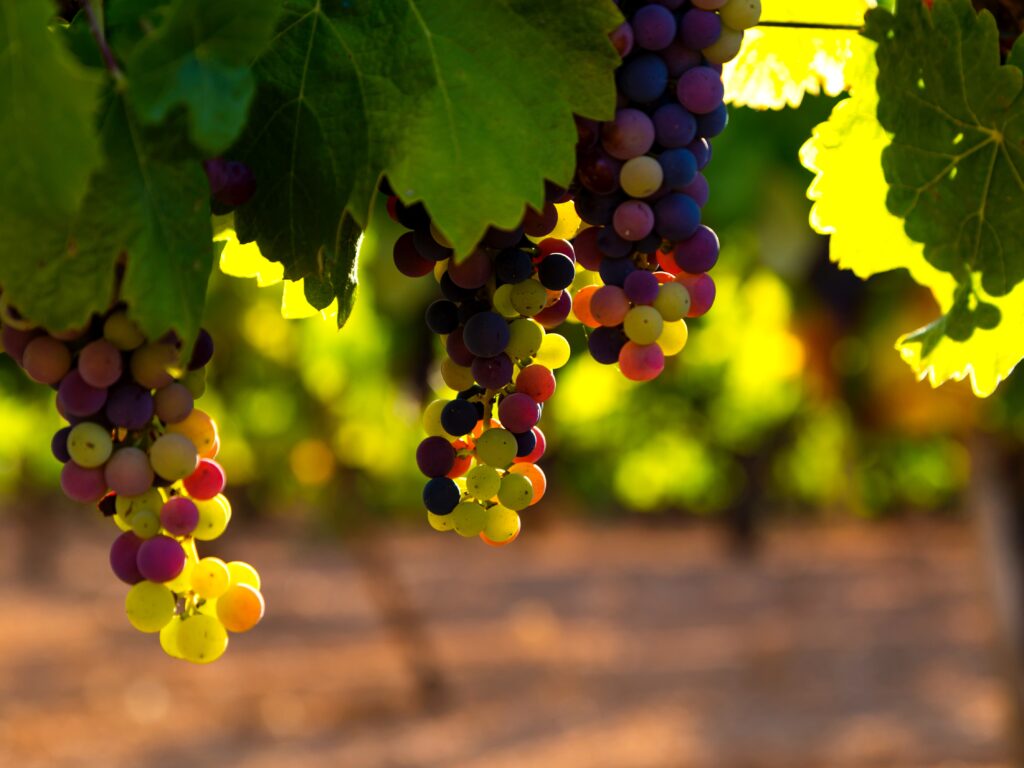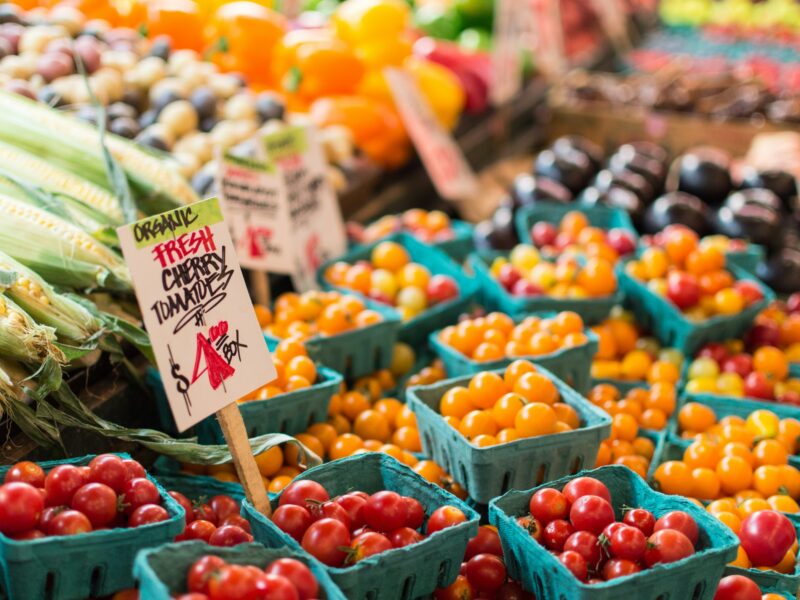The choices health-conscious consumers make about the foods you consume carry significant weight, not only for your own well-being but also for the environment. When it comes to grapes, the choice of organic varieties over conventional ones can have far-reaching implications. This choice goes beyond mere taste preferences; it directly affects our health, the environment, and the sustainability of our agricultural practices.
If you’re familiar with the Environmental Working Group’s (EWG) Dirty Dozen™ list of the fruits and vegetables highest in pesticide residue, based on federal agencies’ tests, you may have noticed that grapes consistently appear on the list. Conventional grape samples contained an average of five different pesticide residues. More than 90% of all samples contained some traceable pesticide residues.
According to Pesticide Action Network’s What’s on My Food app, the residue of 56 pesticides have been found by the Department of Agriculture’s Pesticide Data Program. The breakdown of pesticide residues on grapes:
- Eight are known or probably carcinogens.
- 17 are suspected hormone disruptors.
- 10 are neurotoxins.
- Four are developmental or reproductive toxins.
- 19 are toxic to honeybees.
Another chemical used in conventional grape production is paraquat, which is banned from use in other countries. It is a notably hazardous pesticide used to cultivate soybeans, cotton, and grapes in conventional farming practices. It is the most toxic pesticide used in conventional agriculture in the U.S. – just a small amount can be harmful to human health. Research has linked its exposure to the development of Parkinson’s disease.
The U.K. banned paraquat in 2007 and Canada in 2022, so why is it still used in the U.S.? The answer lies in its role as an herbicide, employed to combat weeds that have evolved to resist another noxious herbicide, glyphosate. Pesticide resistance is just one of many concerns when it comes to conventional food production.
What about dried grapes or raisins? In an extensive analysis of over 750 raisin samples, a staggering 99 percent of samples tested positive for a minimum of two pesticides. On average, each sample showed contamination from more than 13 distinct pesticides. In one case, a sample contained residue of 26 pesticides.
While EWG traditionally focuses on assessing fresh produce in its annual Shopper’s Guide to Pesticides in Produce™ and typically does not include processed foods like raisins, the excessive pesticide residues detected by the USDA prompted the organization to investigate further. They found that if raisins were to be incorporated into the Dirty Dozen rankings, they would secure the top position by a substantial margin, surpassing even fresh grapes, in the seventh spot.
The data unequivocally says raisins are one of the most pesticide-contaminated commodities available on the market today.
According to EWG, it is important to recognize the widespread consumption of raisins, particularly among children under the age of 15, who collectively consume approximately 208 million pounds of raisins each year – nearly half of all raisins consumed in the U.S., according to Zion Market Research.
In 2017, the most recent year for which USDA data is available, the average American ingested roughly 1.25 pounds of raisins. Zion’s industry analysis further shows that slightly less than two-thirds of all raisins are used as ingredients in various food products. The remainder are enjoyed as a snack food.
According to EWG, “after drying, conventionally produced raisins are usually fumigated with toxic gases to control pests during storage. Fumigant residues can remain in foods after treatment, potentially posing hazards to consumer health, but the USDA does not test for fumigant residues.”
So stay away from conventional grapes.
Organic grapes, however, have many health benefits. And the choice of organic grapes amplifies the nutritional value of these fruits. Organic produce, including grapes, is renowned for its higher content of antioxidants and other essential nutrients, compared to conventionally grown counterparts.
In the realm of liver health, research shows grapes play a pivotal role in lowering the risk of non-alcoholic fatty liver disease by influencing the genetic expression associated with this condition. And a comprehensive study examining the impact of grape consumption on brain health has yielded promising insights. Grapes have been shown to bolster cognitive function and enhance memory retention. Furthermore, this study extended its scope to explore the emotional well-being of individuals, and it reported affirmative findings, indicating that grapes can help support mental health.
Grapes emerge as a remarkable treasure trove of antioxidants, with resveratrol and proanthocyanins taking center stage. Extensively studied and acclaimed for their exceptional cardio-protective and potent anti-inflammatory properties, these antioxidants have the potential to revolutionize health and well-being. It is in the grape skins that resveratrol, the renowned antioxidant celebrated for imparting wine with its esteemed health benefits, finds its concentrated essence.
If all these juicy health benefits for our organs weren’t enough, one study found that eating grapes supports longevity.
The truth is conventional grape production is highly toxic. But it’s not necessary to grow grapes in this manner. In fact, according to this study, organic farming methods show us there is a healthier way to grow grapes. Employing cover crops is an organic agricultural technique with multifaceted benefits. It fosters the development of robust, nutrient-rich soil and encourages biodiversity while effectively managing weed populations.
From reduced exposure to harmful pesticides to supporting sustainable farming methods, the advantages of selecting organic grapes are compelling, making it a choice worth considering for those who make a priority not only of the quality of their food but also of our planet’s long-term health. Choosing organic grapes extends these advantages by ensuring harmful chemicals stay out of agriculture, protecting the well-being of farm laborers, preserving the environment, and safeguarding the health of our families.
So indulging in a glass of organic wine and savoring a bowl of cold organic grapes not only offers a delicious experience but also represents a toast to your health, accentuating the importance of making informed dietary choices.
Cheers to your health with organic grapes and wine!









